Digital technology for modern markets
According to experts from the National Code and Barcode Center (National Committee for Standards, Metrology and Quality), currently, regulations do not require the use of codes, barcodes and QR codes on products, so implementation by businesses is still limited.
The reality of operating the electronic information system for tracing the origin of agricultural, forestry, aquatic and food products in Hanoi shows that some businesses do not want to declare information on tracing the origin because they are concerned that if the tracing information is transparent, distribution systems such as supermarkets can directly access the production and transaction addresses, bypassing the intermediary stage. Many businesses are also afraid that making data public will lead to closer supervision from state management agencies such as tax authorities, food safety inspection units, etc. Another reason is the inadequate awareness of some management staff, who believe that tracing the origin of goods is not really necessary in current conditions.
Many experts have commented that recent serious cases of counterfeit goods production and trading show that the development of society has outpaced management thinking; it is time to not ignore it but to tighten management work using technology to avoid similar risks from happening.
Many experts have commented that recent serious cases of counterfeit goods production and trading show that the development of society has outpaced management thinking; it is time to not ignore it but to tighten management work using technology to avoid similar risks from happening.
In addition, the context of promoting digital transformation from Resolution No. 57/NQ-TW of the Politburo on breakthroughs in science and technology development, innovation and national digital transformation has raised the issue of digital transformation for products and goods. The Resolution mentioned promoting the consumption of products and services in the digital environment, ensuring the digital economy of industries and fields, having policies to encourage businesses to invest in digital transformation... Implementing digital transformation is to give products and goods a new, more modern look, easier to connect and most importantly, easy to verify, creating trust for consumers.
According to Mr. Bui Ba Chinh, Acting Director of the National Code and Barcode Center, implementing Resolution No. 57/NQ-TW, authorities and enterprises need to apply technology to digitally transform the supply chain, applying digital technology to all stages from production, warehousing, transportation to distribution to protect consumer rights, improve business competitiveness and state management efficiency.
For example, in the process of agricultural production according to VietGAP standards, manual recording not only increases the risk of errors but is also easily exploited to falsify records and distort production reality. This directly affects the transparency and reliability of the product. On the contrary, if technology is applied to record electronic production logs in real time, businesses can manage the entire supply chain in a transparent and accurate manner, contributing to affirming the quality and origin of products, while promoting the healthy and sustainable development of e-commerce.
When QR codes are not yet standardized, there is a lack of interoperability between systems and there is no strict supervision from authorities, the risk of losing consumer confidence is real. This is also a loophole for counterfeit and poor quality goods to infiltrate and disrupt the genuine goods market. Therefore, although there are currently no regulations requiring businesses to implement traceability, once implemented, businesses are responsible for fully complying with the national standards on traceability that have been issued; any act of providing false or incomplete information can be considered a fraudulent act towards consumers.
An important factor to prevent counterfeit goods is to invest early in upgrading the technology infrastructure of the National Product and Goods Traceability Information Portal. Currently, this portal is still interrupted when traffic increases and data cannot be shared between ministries, branches and localities. Enterprises need to declare information about the supply chain (growing areas, raw materials, production processes, shipments, etc.) on this system for parties to monitor and assign responsibility when incidents occur. Once declared on the portal, enterprises will be responsible before the law and must comply with the published information. As for people, they can access the portal to check the origin, process and quality of products circulating nationwide. For example, in the recent case of fake milk production and consumption, the subjects announced the products mainly in one locality and consumed them in another locality, while the data was not shared. Therefore, if the information was posted on the Portal, the management agency in the locality where the products were consumed would have the information to retrieve and manage.
Need to improve laws, raise awareness of parties
According to Mr. Do Quang Thuan, Head of Marketing Department - Hanoi Consumer Goods Import-Export and Retail Company Limited - BRG Mart and Haprofood supermarket systems, before reaching customers, goods have gone through three layers of quality control of the supermarket. First, when working with suppliers, the supermarket must survey the production site, the chain system and documents related to production standards. When the goods arrive at the supermarket, the security and inspection system will control the quality immediately upon receipt with full import documents and quality control certificates issued by state management agencies. Finally, when the goods are on the shelves, the industry staff will control the quality of the products to see if they are complete and meet the requirements, and must regularly take care of the goods according to display standards.
Mr. Thuan said that supermarkets only have sensory control tools for fresh products, and the source of the products can only be controlled by the supermarket through certificates and licenses for goods circulation regulated by state management agencies. “Supermarkets can only evaluate the growing area when signing the contract, and then daily evaluate the quality by sensory control. There may be cases where due to a production cut, the supplier imports vegetables from outside and the supermarket cannot control them. That is an act of commercial fraud,” Mr. Thuan shared about the reality of quality control at supermarkets.
However, according to technology experts, supermarkets can control the supply chain well (growing area, harvest time...) by tracing the origin using technologies such as codes, barcodes, RFID, AI & Big Data... Therefore, supermarkets need to monitor product quality on behalf of consumers, propose risk control plans and take responsibility for their supply chain. The Law on Consumer Protection 2023 also stipulates that organizations and individuals trading in goods and services are responsible for ensuring the safety and quality of products, goods and services sold and provided to consumers in accordance with the published content.
Many customers do not care, do not know or do not need to find out what the QR code printed on the product packaging is for.
Meanwhile, many customers do not care, do not know or do not need to find out what the QR code printed on the product packaging is for. Most shoppers only use their phones to scan the QR code to pay for goods without scanning the QR code to find out product information. This indirectly affects the rights of consumers, especially when the goods do not guarantee the origin, source and food safety. Only when consumers clearly understand their rights can they force sellers to be transparent about product quality.
For businesses, using QR codes for traceability brings many benefits. Each product with a QR code will help businesses publicize detailed information about the production process, origin of raw materials, production date and quality certifications, thereby building strong trust with customers. In particular, for exporting businesses, applying QR codes for traceability not only ensures compliance with international regulations on product quality but also helps enhance brand reputation in the international market. In the context of Vietnam's deep integration into the global economy, businesses implementing traceability will help make the production process transparent and create favorable conditions for businesses to enjoy tax incentives as well as improve international competitiveness.
Lawyer Mai Thi Thao, Deputy Director of Truong Anh Tu Law Firm, said that in the context of digital transformation, we talk a lot about QR codes, blockchain, supply chain monitoring systems... but we have not yet built a shared data system, there is no mechanism for interconnection between departments and branches, and there are not enough legal tools to force parties to comply. We need to improve the law, especially regulations on traceability, sanctions for importing goods with unclear information, and the responsibility of intermediaries; it is necessary to apply a centralized management system and digitize all data related to goods, so that any consumer can look up the origin of the product and need to raise awareness among consumers about the right to safety and compensation. When consumers are proactive, businesses will not dare to do business dishonestly.
>> Lack of traceability, consumers suffer
Source: https://nhandan.vn/chia-khoa-bao-ve-nguoi-tieu-dung-va-doanh-nghiep-post876962.html


![[Photo] Vietnam shines at Paris International Fair 2025 with cultural and culinary colors](https://vphoto.vietnam.vn/thumb/1200x675/vietnam/resource/IMAGE/2025/5/4/74b16c2a197a42eb97597414009d4eb8)

![[Photo] General Secretary To Lam receives Sri Lankan President Anura Kumara Dissanayaka](https://vphoto.vietnam.vn/thumb/1200x675/vietnam/resource/IMAGE/2025/5/4/75feee4ea0c14825819a8b7ad25518d8)

![[Photo] Bus station begins to get crowded welcoming people returning to the capital after 5 days of holiday](https://vphoto.vietnam.vn/thumb/1200x675/vietnam/resource/IMAGE/2025/5/4/c3b37b336a0a450a983a0b09188c2fe6)












![[Photo] Bus station begins to get crowded welcoming people returning to the capital after 5 days of holiday](https://vphoto.vietnam.vn/thumb/402x226/vietnam/resource/IMAGE/2025/5/4/c3b37b336a0a450a983a0b09188c2fe6)













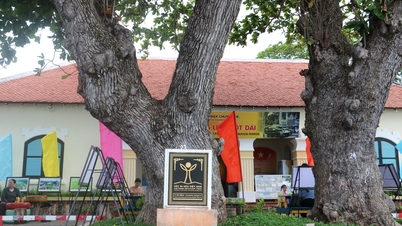



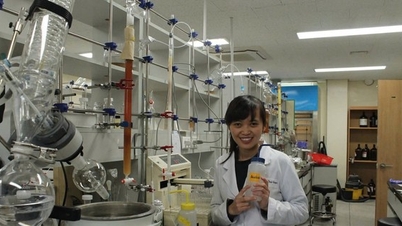








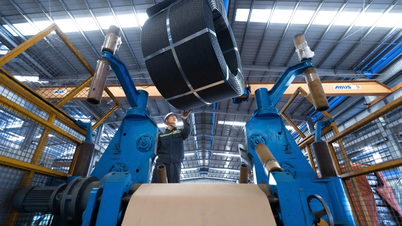

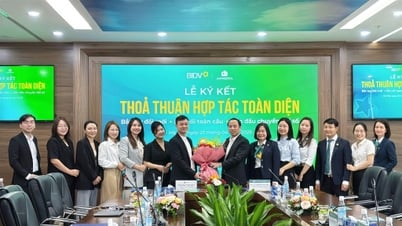

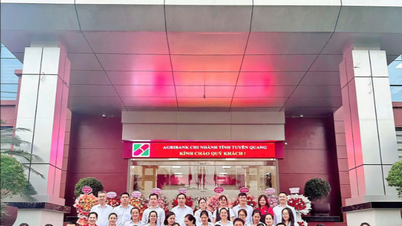

























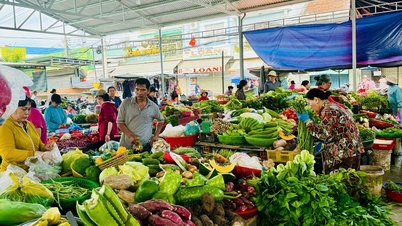










![[Video]. Building OCOP products based on local strengths](https://vphoto.vietnam.vn/thumb/402x226/vietnam/resource/IMAGE/2025/5/3/61677e8b3a364110b271e7b15ed91b3f)




Comment (0)